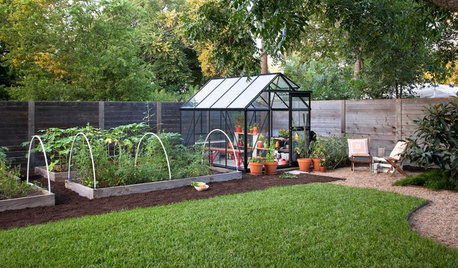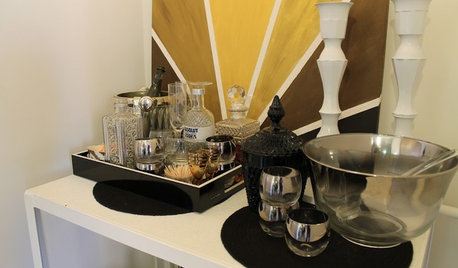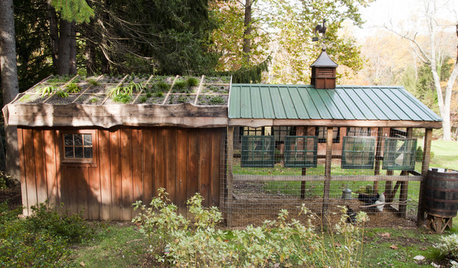Eggs shells and diseases
ngrrsn
11 years ago
Related Stories

SHOP HOUZZShop Houzz: The Incredible Egg
Kick off your day with eggs and cheerful sunny-side-up accessories
Full Story0

GARDENING GUIDESGet on a Composting Kick (Hello, Free Fertilizer!)
Quit shelling out for pricey substitutes that aren’t even as good. Here’s how to give your soil the best while lightening your trash load
Full Story
GARDENING GUIDESCentral Plains Gardener's June Checklist
The flowers are coming! The flowers are coming! And so are the butterflies, hummingbird moths and coneflower diseases
Full Story0

EDIBLE GARDENSA Formerly Weedy Lot Now Brims With Edibles and Honeybees
Photographers transform their barren backyard into an oasis filled with fruit, vegetables, honey, eggs and more
Full Story
TOWNHOUSESHouzz Tour: Color and Light Transform a Brooklyn Townhouse
Bright red and robin’s egg blue accents set off white walls and wood floors in this bright New York family home
Full Story
VINTAGE STYLE8 Tips for Collecting Chic Vintage Barware
Make cocktail hour a swanky affair without shelling out too much dough, by hitting up thrift stores for glasses and more
Full Story
ACCESSORIESHigh Point Market Branches Out Into Natural Decor
Branches, driftwood, shells and sustainable materials were big trends in decor items at the 2012 High Point Market. Take a peek here
Full Story
FARM YOUR YARDHouzz Call: Show Us Your One-of-a-Kind Chicken Coops
Do you have a fun or stylish backyard shelter for your feathered friends? Post your pictures and stories in the Comments!
Full Story
GARDENING GUIDESGreat Design Plant: Asclepias Incarnata for a Butterfly Garden
Beautiful swamp milkweed makes it easy to help monarchs and other pollinators in eastern U.S. gardens
Full Story
ACCESSORIESFound Objects: The Most Natural Decor of All
They're beautiful, plentiful and best of all, free. See how to turn surprise finds into uniquely personal displays
Full Story





RpR_
digdirt2
Related Professionals
East Rancho Dominguez Landscape Architects & Landscape Designers · Richmond Heights Landscape Architects & Landscape Designers · Saint Louis Park Landscape Architects & Landscape Designers · Allentown Landscape Contractors · Canby Landscape Contractors · Euclid Landscape Contractors · Haverhill Landscape Contractors · Lake Saint Louis Landscape Contractors · Monterey Landscape Contractors · San Benito Landscape Contractors · Shirley Landscape Contractors · Wallingford Landscape Contractors · Maplewood Landscape Contractors · Ramona Driveway Installation & Maintenance · Mount Vernon Driveway Installation & Maintenancerhizo_1 (North AL) zone 7
buckyz4
cheapheap
planatus
rhizo_1 (North AL) zone 7
ngrrsnOriginal Author
digdirt2
ngrrsnOriginal Author
albert_135 39.17°N 119.76°W 4695ft.
digdirt2
Beeone
PlantsAndYarn
cheapheap
albert_135 39.17°N 119.76°W 4695ft.
alan290
seysonn